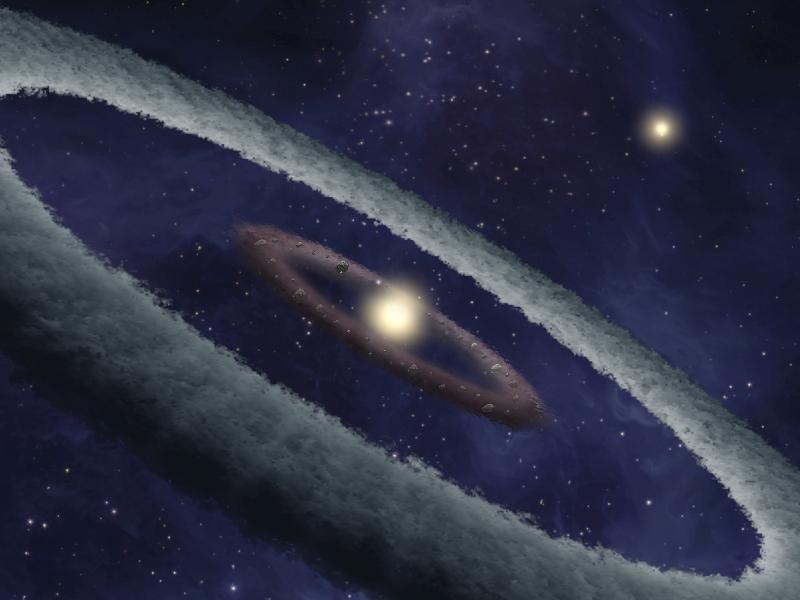Planets
A planet is a large volume of rock, metal or gas that orbits a star.
The word planet has its origin in ancient times when the movements of the stars were observed by the Greeks, who noticed some of them changed positions. They named these mobile stars Planetes, meaning wanderer, which is the word Planet is derived from.
There are three criteria that define a planet.
- A planet must orbit a sun
- A planet must be spherical, not an irregular lump of rock like an asteroid.
- A planet must have a clear path through it's orbit, not share it's orbit with other neighbouring objects.
Planet formation - the brown ring is dusty material and rocks that will eventually collect together to form a planet around the bright central star

Credit:NASA
There are nine known planets that orbit our sun. Astronomers and scientists are busy attempting to identify planets around other stars and a number have been found so far.
There are basically two classifications of planets:
- Terrestrial planets are formed mostly from rock and metals.
- Jovian planets are formed from gas.